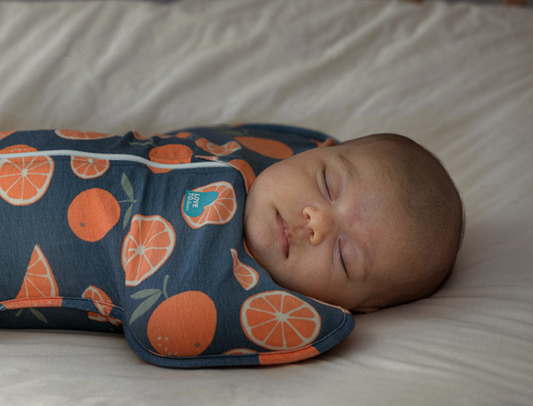Recognising Tired Signs in Babies
When navigating the bewildering world of new babies, a lot of emphasis is placed on plotting out nap times, planning the all-important sleep routine and enticing your baby into taking the rest they need. Sometimes this means we can become oblivious to the subtle sleep signals our little ones are giving us. Whilst routines are important, mastering the art of interpreting overtired baby signs may just be the key to helping you establish good sleep habits.
When baby becomes overtired, their bodies can go into a stress response, triggering adrenaline and cortisol production. Recognising and knowing when to enable your baby to take rest before they get into an overtired state, can save them (and you) from the bigger hurdle of getting to sleep after they’ve become stressed or agitated.
Common Tired Signs for Newborns:
Registering the patterns of behaviour your overtired newborn demonstrates is key to fostering a valuable communication between you. As with most other things, each baby has their own set of signals. You will begin to tune into your own baby’s rhythms and signs, but here are some of the most common indicators that your baby may be ready to snuggle down to sleep.
Jerking Arms & Legs
Sudden, uncontrolled or staccato arm and leg movements are signs of overtired baby and that it’s coming to the end of their awake time. If you notice your baby jerking their arms and legs, it may be their way of telling you they need to nap. Begin your naptime or sleep time routine by swaddling your baby to help them feel secure.
Frowning
Frowning is among the subtler baby tired cues, but often means that your baby is becoming unhappy with the current situation and needs to rest.
Getting a little pink around their eyebrows
This indicator that your baby is becoming tired is due to slight hormonal changes and/or rubbing of the eyes. When baby goes a little pink around the eyebrows, it is usually a newborn tired cue and means it might be time to wind up your current activity and start the process of naptime.
Staring into space
Inability or unwillingness to focus or engage can mean that the sleeping bag may be calling. If you notice your baby has lost interest in the world around them, it may be that they are becoming overtired.
Yawning
Just like with adults, a yawn is amongst the more obvious of baby tired signs. Yawning indicates it’s time to turn in. There are many theories as to exactly why we yawn and whilst there is no conclusive proof, a yawn is universally recognised as a sign of tiredness. Yawning involves a rapid inhalation of breath and a deep exhale. If you notice your baby yawning, it may be time to swaddle up and get cosy.
Arching their back
When babies arch their back, it can be a sign that they are upset or restless. If you haven’t already, begin your naptime routine.
Tired signs for older babies & children
Overtired signs and cues for older children can be a little more obvious than newborn overtired signs. Not only have you had time to establish what your baby tends to do when they’re tired, signs in older babies can be easier to read.
Irritability
Overtiredness in older children can often manifest as fussiness, frustration or impatience and is a sign that it’s that your baby may be overtired. If you notice your baby becoming increasingly irritable they may be trying to communicate to you that they need to recharge.
Hyperactivity
Rather than become sleepy when they are overtired, babies can become hyperactive. The inability to give themselves the rest they need can become stressful for your baby. Their body is flooded with cortisol and adrenaline, making falling to sleep much more difficult. If you notice your baby becoming hyperactive, it may be wise to start a calming routine designed to help them past the overtired stage and redirect them into an opportunity for rest.
Clinginess
Not being able to put your baby down, or your baby demanding to be held may be an indication your baby is seeking comfort in your arms in the absence of sleeping. Taking refuge in the arms of Mum, Dad or a caregiver can provide baby with comfort. If you notice your baby becoming increasingly clingy, help them feel secure by perhaps providing the comfort of a swaddle as a reminder that it’s time to rest.
Tantrums and meltdowns
If your baby is throwing a tantrum or having a meltdown, it is likely they have already reached the overtired stage. Your baby is communicating extreme frustration by behaving in a heightened way that is out of proportion to the circumstances, or at odds with their normal pattern of behaviour. If your baby has reached this stage it may be difficult to begin a nap/sleep routine as normal. Your baby may need extra soothing, cuddles, a distraction or a bath to help settle them back down.
Becoming vocal
A common way for any of us to let the world know of our displeasure is by becoming vocal. In the absence of a vocabulary, becoming generally noisy or disruptive is a way for your baby to let you know they’re overtired.






